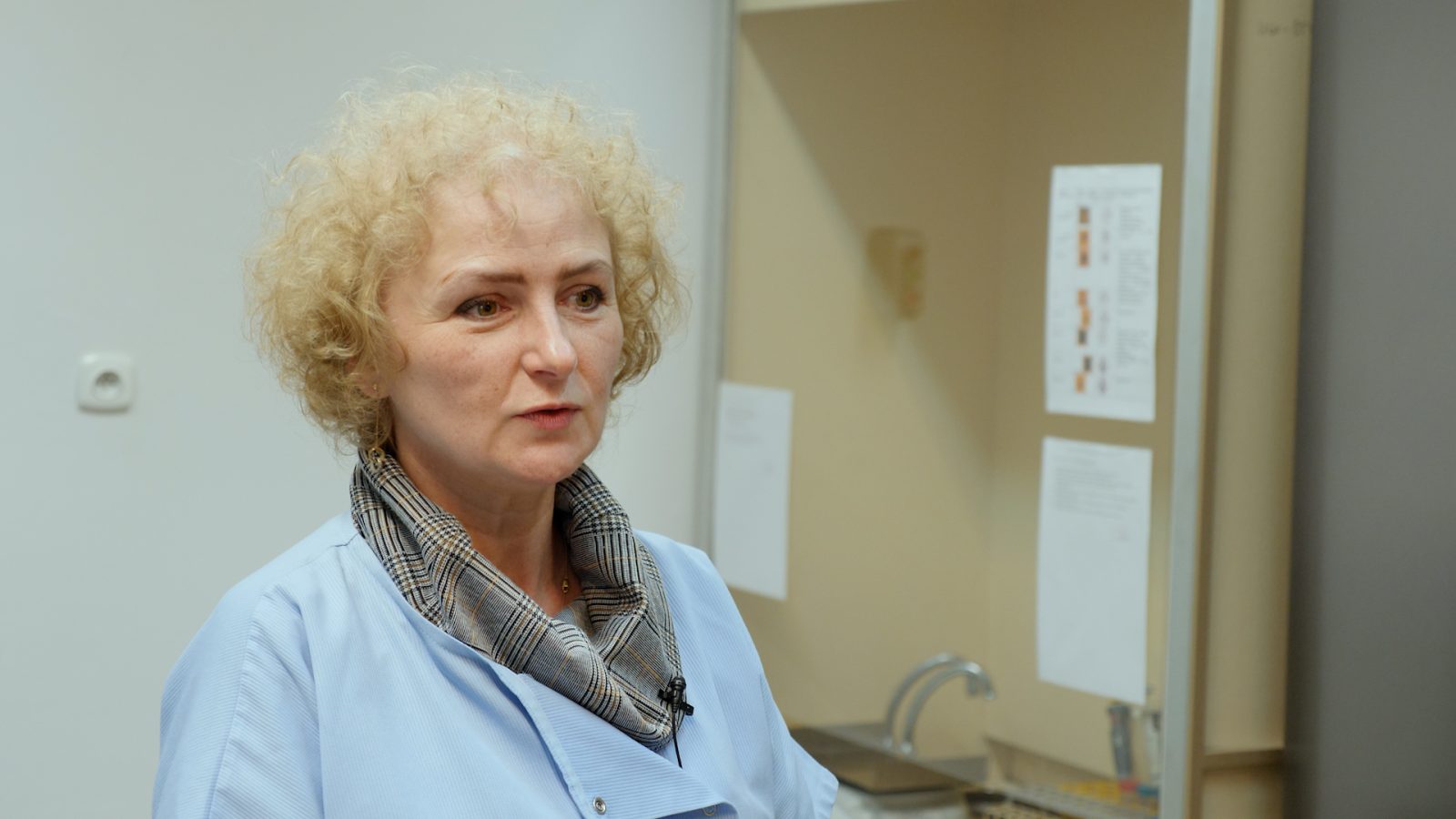
Women’s Week at UWr – prof. Drulis-Kawa
Due to National Women’s Day this week, we decided to introduce our academic community to women – scientists, researchers, professors, doctors, and doctoral students who conduct classes and research in their labs and workshops, establishments and institutes, and faculties every day. Today, we would like to introduce you to prof. dr hab. Zuzanna Drulis-Kawa of the Department of Pathogen Biology and Immunology at the Institute of Biological Studies. What are her tasks, interests, and advice for young female researchers starting in the academic world? See yourself!
Prof. dr hab. Zuzanna Drulis-Kawa works at the Department of Pathogen Biology and Immunology which deals with studying phages. Phages are a very precise weapon against bacteria because they only attack specific species. Thanks to that, when used as therapeutic means, they protect human flora.
The Department of Pathogen Biology and Immunology is a modern and dynamic research-didactic facility that has an admirable number of publications, grants, and country and international collaborations. The young and supple team working under Zuzanna Drulis-Kawa’s supervision deals with the most important aspects, from the clinical point of view, of bacterial pathogens’ drug resistance. Researchers in the department study microbiology, immunology, and virology. Their research deals with the biology of dangerous species of bacteria from the ESKAPE group and the ways they can be fought, especially with phages and other nonconventional antimicrobials.
Phages are a very precise weapon against bacteria because they only attack specific species. Thanks to that, when used as therapeutic means, they protect human flora. Currently, Drulis-Kawa’s team works on phage enzymes’ antibacterial effects. Such phages are endolysin and depolymerase which can kill bacteria in just a few seconds (or at least successfully “dismantle” the pathogens) which helps the human body fight infections. What is more, phages and their enzymes can be safely used with conventional antibiotics which were proven by already implemented experimental treatments.
The department also works on a better understanding of predator-prey and parasite-host dynamics which shed new light on the coevolution mechanisms of phages, bacteria, and immune system.
The team also studies the phages and other nonconventional antimicrobials’ influence on the infectivity and virulence of pathogens while minding the fact that the pathogenicity of microorganisms is a result of their virulence and the human immune system functioning.
“We have known about phages for about 100 years now but the studies on them were neglected in the 40s because of the discovery of antibiotics. Our department works on a new research project dealing with the phages use in treating cases of klebsiella pneumoniae – a pathogen that WHO categorized as critical when it caused various deuteropathies after the pandemic. KLEOPATRA (effective cOmbination of Phages and Antibiotics for improved TheRApy protocols against KLEbsiella pneumoniae) involves both, the phages and enzymes treatment. The phages’ enzymes are able to degrade the bacterial capsule which is the main factor of infections. Hence, bacteria are virulent and can dodge the immune system’s responses toward them. The team’s idea is to use those enzymes together with phages and antibiotics to treat patients. The phages are easy to find due to being everywhere where their hosts are. The EKAPE bacteria originate in the digestive system hence they are the easiest to find in sewers or irrigation fields where no one uses chemicals to degrade microbiological fouling which allows for the biggest chance of retrieving the viruses. We all have heard of the Ganges – that is where we can retrieve the biggest number of phages. Maybe, the healing properties of the river are due to the activity of the plethora of natural pathogens found therein.”
“I don’t think we will ever abandon antibiotics. They are easy to produce and we know their exact distribution in the human body. Phages are an experimental treatment and they’re all very different. Therefore, it is difficult to foresee whether they will work or not. Their activity is very narrow so we have to know which exact pathogen caused the infection to choose the right phage. Antibiotics, on the other hand, work broadly. Hence, it is easier to choose the accurate treatment yet it is destructive to our natural flora. Such influence causes side effects like dysbiosis, deuteropathies, or the population’s resistance to antibiotics. That’s why antibiotics used so broadly in animal husbandry, food production, agriculture, and veterinary and clinical medicine, caused antibiotics-resistant strains. We limited such universal and successful use ourselves. Hence, it may appear as phages won’t be able to completely substitute for antibiotics. However, in the case of infections caused by multi-drug-resistant strains, for now, phages will be the most available alternative.”
“I think you have to be extremely convinced and not be afraid of your own dreams. What is most important is for women to support other women – only then we will actually make it work!”
Translated by Anna Kobylowska (student of English Studies at the University of Wrocław) as part of the translation practice.



